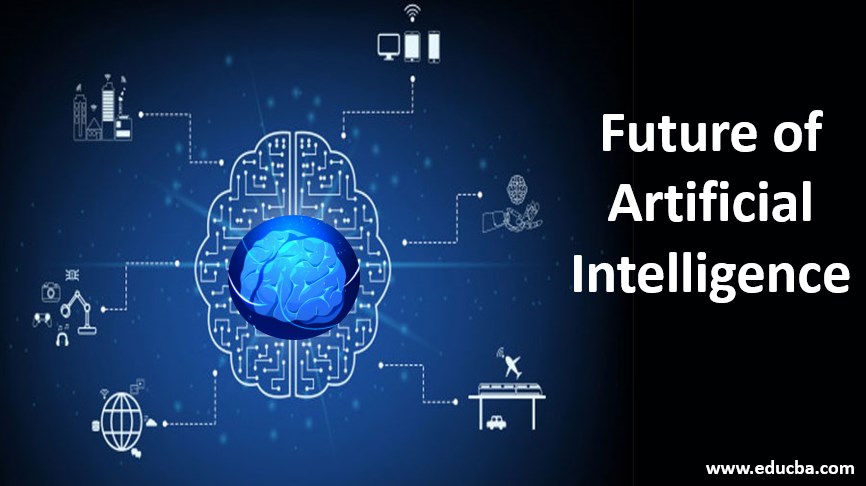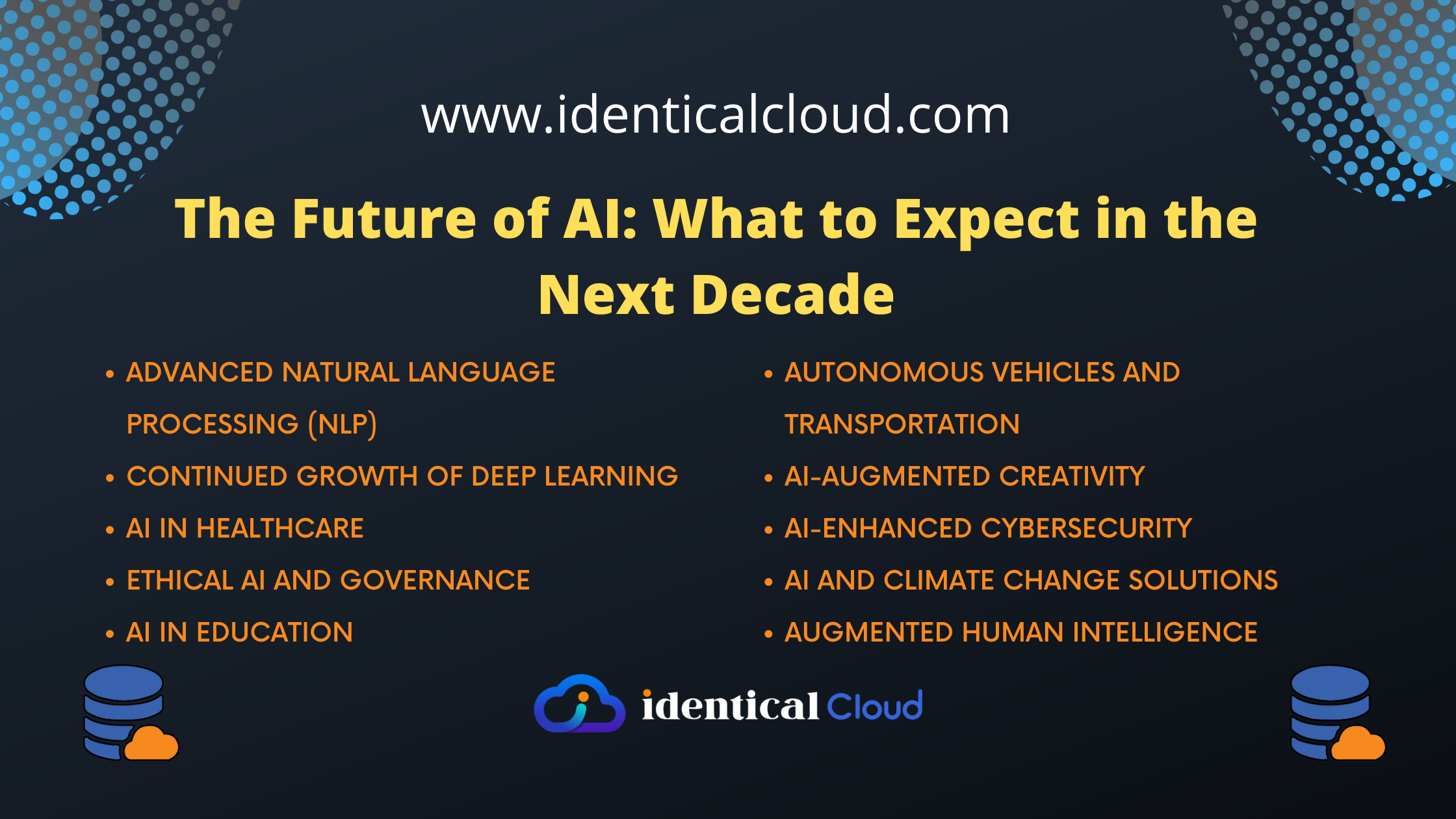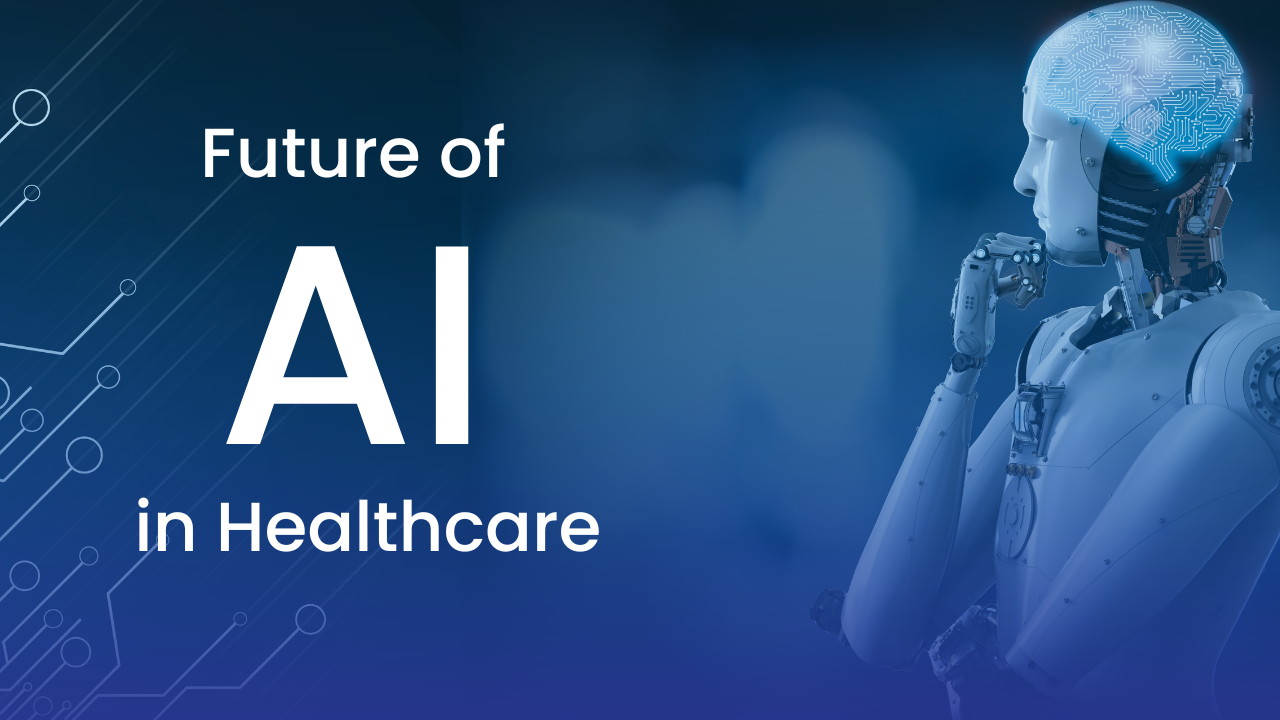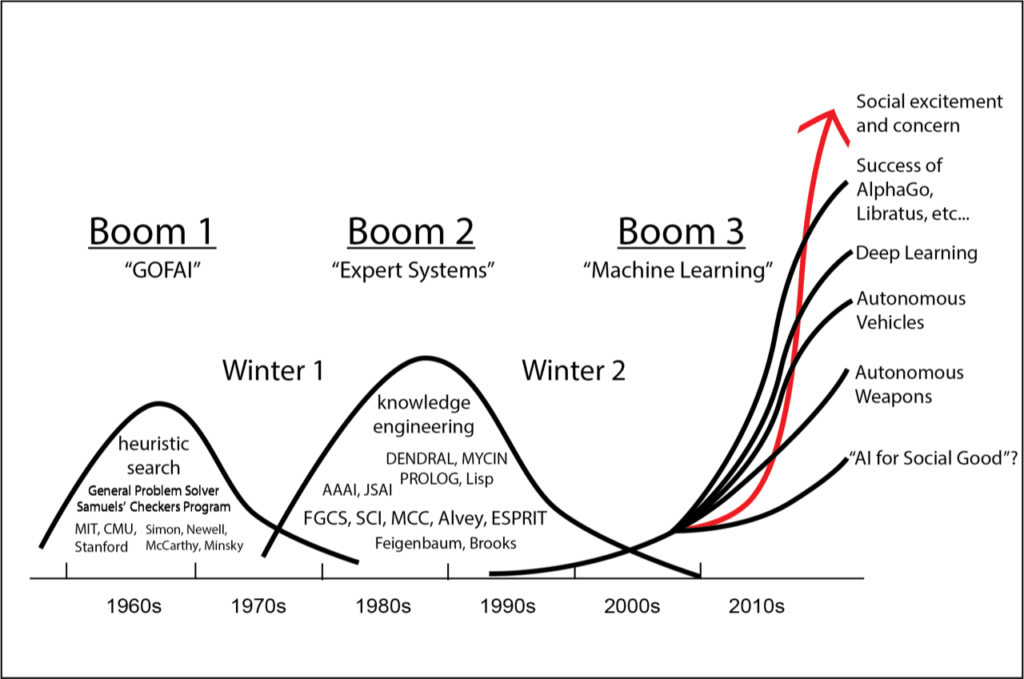Artificial intelligence (AI) has revolutionized countless industries, from healthcare and finance to transportation and entertainment. While AI’s current capabilities are impressive, they represent just the tip of the iceberg. The field is rapidly evolving, with emerging technologies poised to push the boundaries of what AI can achieve.
This exploration delves into the next chapter of AI, examining the exciting possibilities and challenges that lie ahead.
We will analyze the limitations of current AI systems, explore the potential of emerging technologies like quantum computing and neuromorphic computing, and discuss the profound impact AI will have on the future of work, society, and humanity itself.
The Evolution of AI

Artificial intelligence (AI) has evolved from a nascent concept to a transformative force, revolutionizing various industries and aspects of human life. Its journey is marked by significant milestones and breakthroughs that have shaped the field and propelled its progress.
Early Foundations
The origins of AI can be traced back to the mid-20th century, with the emergence of computer science and the development of early computing machines. Key figures like Alan Turing, John McCarthy, and Marvin Minsky laid the groundwork for the field, establishing foundational concepts and setting the stage for future advancements.
The Golden Age of AI
The 1950s and 1960s witnessed a surge of optimism and enthusiasm for AI research. Early AI systems were developed, demonstrating rudimentary capabilities in areas such as game playing and theorem proving. However, this period was also marked by limitations and challenges, leading to a period known as the “AI winter” in the 1970s.
The Rise of Machine Learning
The 1980s saw the emergence of machine learning (ML) as a dominant paradigm in AI. ML algorithms, particularly those based on neural networks, enabled computers to learn from data and improve their performance over time. This breakthrough paved the way for more sophisticated AI applications, including expert systems and natural language processing.
The Big Data Revolution
The advent of the internet and the exponential growth of data in the 21st century fueled a new wave of AI development. Big data analytics, coupled with advances in computing power and storage capacity, enabled the training of increasingly complex AI models.
This led to breakthroughs in areas such as image recognition, speech synthesis, and machine translation.
Deep Learning and Its Impact
Deep learning, a subset of ML that utilizes deep neural networks with multiple layers, emerged as a game-changer in the 2010s. Deep learning algorithms have achieved unprecedented accuracy in tasks such as image classification, object detection, and natural language understanding.
The Impact of AI on Industries
AI has had a profound impact on various industries, transforming business processes, enhancing efficiency, and creating new opportunities. Some notable examples include:
- Healthcare:AI is used for medical diagnosis, drug discovery, personalized treatment plans, and disease prediction.
- Finance:AI powers fraud detection, risk assessment, algorithmic trading, and customer service automation.
- Manufacturing:AI enables predictive maintenance, quality control, and optimized production processes.
- Retail:AI is used for personalized recommendations, inventory management, and customer service chatbots.
- Transportation:AI is driving the development of autonomous vehicles, traffic optimization systems, and logistics automation.
The Future of AI
AI continues to evolve rapidly, with ongoing research and development focused on areas such as:
- Explainable AI (XAI):Developing AI models that are transparent and interpretable, enabling humans to understand their decision-making processes.
- AI Ethics:Addressing ethical considerations related to AI, including bias, fairness, privacy, and safety.
- AI for Social Good:Leveraging AI to address societal challenges such as climate change, poverty, and healthcare disparities.
Beyond the Hype

While AI has made significant strides, it’s crucial to acknowledge its limitations and the ethical considerations surrounding its development and deployment. The hype surrounding AI can sometimes overshadow the realities of its capabilities and the potential risks it poses.
Current Limitations and Challenges
AI technologies face several limitations and challenges that hinder their widespread adoption and limit their effectiveness in various domains.
- Data Dependency:AI models are trained on vast datasets, and their performance heavily relies on the quality and diversity of the data. Biased or incomplete data can lead to biased outputs and inaccurate predictions. For example, facial recognition systems trained on predominantly white datasets have been shown to be less accurate when identifying people of color.
- Lack of Generalizability:AI models often struggle to generalize their knowledge to new situations or domains. A model trained to recognize cats in one dataset may not be able to identify cats in a different dataset with different lighting conditions or camera angles.
This lack of generalizability limits their applicability in real-world scenarios.
- Explainability and Transparency:Many AI models, particularly deep learning models, operate as black boxes, making it difficult to understand how they arrive at their decisions. This lack of transparency can be problematic in critical applications such as healthcare or finance, where it’s essential to understand the reasoning behind a decision.
- Computational Resources:Training and deploying large AI models require significant computational resources, including powerful hardware and energy. This can be a barrier to entry for smaller organizations or individuals who lack the necessary infrastructure.
Ethical Implications of AI
The widespread adoption of AI raises significant ethical concerns, including:
- Bias and Discrimination:AI systems can perpetuate and amplify existing biases in data, leading to discriminatory outcomes. For example, algorithms used for loan approvals or job recruitment have been shown to discriminate against certain groups based on factors such as race, gender, or socioeconomic status.
- Privacy and Security:AI applications often collect and analyze large amounts of personal data, raising concerns about privacy and security. There’s a risk of unauthorized access, data breaches, and the misuse of personal information.
- Job Displacement:Automation driven by AI has the potential to displace human workers in various industries, leading to job losses and economic disruption. It’s crucial to consider the social and economic impacts of AI and implement strategies to mitigate these risks.
- Autonomous Weapons:The development of autonomous weapons systems raises serious ethical concerns about the potential for unintended consequences and the loss of human control over warfare. It’s essential to establish clear guidelines and regulations to prevent the misuse of AI in military applications.
Real-World Scenarios Where AI Has Fallen Short of Expectations
- Self-Driving Cars:Despite significant progress, self-driving cars have yet to achieve widespread adoption due to challenges in handling complex driving scenarios, such as unpredictable weather conditions or unexpected obstacles. Several accidents involving autonomous vehicles have highlighted the limitations of current technology.
- AI in Healthcare:While AI has the potential to revolutionize healthcare, it has faced challenges in areas such as medical diagnosis and treatment planning. The complexity of human biology and the need for accurate data make it difficult for AI to provide reliable and consistent medical advice.
- Chatbots:Chatbots have become increasingly popular, but they often struggle to understand complex queries or provide nuanced responses. Their limited capabilities can lead to frustrating user experiences and a lack of trust in AI-powered communication.
Emerging Technologies

The next wave of innovation will likely be driven by technologies that build upon and expand the capabilities of AI. These emerging technologies are poised to revolutionize various industries and aspects of our lives.
Quantum Computing
Quantum computing leverages the principles of quantum mechanics to perform computations in a fundamentally different way than traditional computers. It utilizes qubits, which can exist in multiple states simultaneously, allowing for significantly faster processing of complex problems. This technology has the potential to accelerate drug discovery, materials science, and financial modeling.
- Drug discovery: Quantum computers can simulate molecular interactions, enabling faster and more efficient drug development.
- Materials science: They can model the behavior of materials at the atomic level, leading to the creation of new materials with enhanced properties.
- Financial modeling: Quantum computers can optimize financial portfolios and analyze market trends with greater accuracy.
Neuromorphic Computing
Neuromorphic computing mimics the structure and function of the human brain, employing artificial neurons and synapses to process information. This approach aims to create more efficient and adaptable AI systems, capable of learning and adapting in real-time.
- Robotics: Neuromorphic computing can enable robots to learn and adapt to changing environments, improving their dexterity and autonomy.
- Natural language processing: It can enhance the ability of AI systems to understand and generate human language, leading to more sophisticated chatbots and virtual assistants.
- Image recognition: Neuromorphic computing can improve the accuracy and speed of image recognition tasks, benefiting applications like autonomous driving and medical imaging.
Edge Computing
Edge computing brings computation and data storage closer to the source of data, reducing latency and improving responsiveness. This approach is particularly relevant for AI applications that require real-time processing, such as autonomous vehicles and industrial automation.
- Autonomous vehicles: Edge computing enables faster processing of sensor data, enabling self-driving cars to react more quickly to changing road conditions.
- Industrial automation: It allows for real-time analysis of data from sensors and machines, optimizing production processes and reducing downtime.
- Smart cities: Edge computing can facilitate the deployment of connected devices and services, enhancing traffic management, energy efficiency, and public safety.
Biotechnology
Advancements in biotechnology, particularly in the areas of gene editing and synthetic biology, are creating new opportunities for AI applications. These technologies can be used to develop personalized medicine, enhance agricultural productivity, and address environmental challenges.
- Personalized medicine: AI can analyze genetic data to predict disease risk and tailor treatments to individual patients.
- Agricultural productivity: AI-powered tools can optimize crop yields and reduce the use of pesticides and fertilizers.
- Environmental challenges: Biotechnology and AI can be used to develop solutions for pollution control, climate change mitigation, and sustainable energy production.
Human-AI Collaboration

The advent of Artificial Intelligence (AI) is rapidly transforming the landscape of work, presenting both opportunities and challenges. While concerns about job displacement loom large, the future of work is more likely to be characterized by human-AI collaboration, where humans and AI systems work together to enhance productivity and innovation.
Impact of AI on the Future of Work
The impact of AI on the future of work is multifaceted. AI is poised to automate tasks that are repetitive, rule-based, and data-intensive, potentially leading to job displacement in certain sectors. However, AI is also creating new jobs and transforming existing ones, requiring workers to adapt and acquire new skills.
For example, AI-powered tools are being used to analyze large datasets, automate customer service interactions, and generate personalized recommendations. This necessitates a workforce that can effectively collaborate with AI systems, interpret their outputs, and leverage their capabilities.
Societal Impact and Ethical Considerations

The advent of AI has ushered in a new era, promising transformative advancements across various domains. However, this revolution also raises profound questions about its societal impact and the ethical considerations that must guide its development and deployment.
Potential Societal Impact
AI’s potential impact on society is multifaceted, encompassing both positive and negative implications. On the positive side, AI has the potential to enhance productivity, improve healthcare, and foster innovation. For instance, AI-powered systems can automate tasks, leading to increased efficiency and productivity in various industries.
In healthcare, AI can assist in disease diagnosis, drug discovery, and personalized treatment plans. Furthermore, AI can drive innovation by analyzing vast datasets and identifying patterns that humans may miss, leading to breakthroughs in fields such as materials science and energy production.However, AI’s societal impact is not without its drawbacks.
One major concern is the potential for job displacement, as AI systems automate tasks previously performed by humans. This could lead to economic inequality and social unrest. Another concern is the potential for AI to be used for malicious purposes, such as the development of autonomous weapons systems or the manipulation of information for political gain.
Additionally, the reliance on AI systems could lead to a decline in human skills and critical thinking abilities, raising concerns about the future of work and education.
Ethical Challenges
The ethical challenges posed by AI are complex and multifaceted. Some key concerns include:
Bias in AI Systems
AI systems are trained on data, and if this data reflects existing biases, the resulting AI systems can perpetuate and even amplify those biases. For example, AI systems used for hiring or loan approvals may exhibit bias against certain demographic groups if the training data reflects historical discrimination.
Privacy Concerns
AI systems often collect and analyze vast amounts of personal data, raising concerns about privacy. The use of facial recognition technology, for example, raises questions about the potential for surveillance and the erosion of individual privacy.
Autonomy and Control
As AI systems become more sophisticated, questions arise about the level of autonomy they should be granted and the extent to which humans should retain control over their decisions. For example, in the context of self-driving cars, ethical dilemmas arise when an AI system has to make life-or-death decisions in unforeseen situations.
Key Ethical Considerations and Potential Solutions
| Ethical Consideration | Potential Solutions |
|---|---|
| Bias in AI Systems |
|
| Privacy Concerns |
|
| Autonomy and Control |
|
The Future of AI

The field of AI is evolving rapidly, with new breakthroughs and innovations emerging at an unprecedented pace. As AI continues to develop, it is poised to reshape various aspects of our lives, from how we work and interact with the world to how we understand and address complex societal challenges.
Future Directions of AI Research and Development
The future of AI research and development is characterized by a convergence of different disciplines, including computer science, neuroscience, cognitive science, and philosophy. This interdisciplinary approach will drive advancements in various areas, including:
- Explainable AI (XAI):As AI systems become increasingly complex, understanding their decision-making processes becomes crucial. XAI aims to develop transparent and interpretable AI models that can explain their reasoning to humans, fostering trust and accountability.
- AI for Social Good:AI has the potential to address pressing societal issues, such as healthcare, education, and environmental sustainability. Researchers are focusing on developing AI solutions for these challenges, leveraging AI’s capabilities to improve access to resources, enhance decision-making, and create a more equitable and sustainable future.
- AI Ethics and Governance:The rapid development of AI raises ethical concerns regarding bias, privacy, and the potential displacement of human workers. Researchers and policymakers are actively working to establish ethical frameworks and governance mechanisms to ensure responsible AI development and deployment.
- AI Hardware Advancements:Advancements in hardware, such as specialized AI chips and quantum computing, are crucial for accelerating AI development. These advancements enable the training of larger and more complex AI models, unlocking new possibilities for AI applications.
Potential Breakthroughs and Innovations
The future of AI holds the promise of groundbreaking breakthroughs and innovations that could revolutionize various industries and aspects of our lives. Some potential advancements include:
- General-Purpose AI (AGI):AGI refers to AI systems that possess human-level intelligence and can perform a wide range of tasks. While still in its early stages, research in AGI aims to develop AI systems that can learn, adapt, and solve problems across various domains.
- AI-Powered Robotics:Advancements in AI and robotics are leading to the development of increasingly sophisticated robots capable of performing complex tasks in various environments. These robots could revolutionize industries like manufacturing, healthcare, and logistics.
- AI-Enhanced Creativity:AI is increasingly being used to augment human creativity in fields like art, music, and literature. AI-powered tools can generate new ideas, assist in composition, and enhance the creative process.
- AI for Personalized Medicine:AI is transforming healthcare by enabling personalized medicine, where treatments are tailored to individual patients based on their genetic makeup, lifestyle, and medical history.
Timeline of Potential Future Milestones in AI Development
Predicting the exact timeline for AI development is challenging, but some potential milestones could include:
- 2025-2030:Widespread adoption of AI-powered tools and services in various industries, including healthcare, finance, and transportation. Increased focus on AI ethics and governance.
- 2030-2040:Emergence of more sophisticated AI systems, including AGI, capable of performing complex tasks and interacting with humans in more natural ways.
- 2040-2050:AI becomes deeply integrated into society, impacting various aspects of human life, including work, education, and entertainment.
Concluding Remarks
The journey beyond AI is a fascinating one, filled with both promise and uncertainty. As we continue to develop and refine AI technologies, it is crucial to address the ethical considerations and potential risks associated with these advancements. By fostering responsible innovation and collaboration between humans and AI, we can harness the transformative power of intelligent systems to create a brighter future for all.
Clarifying Questions
What are some examples of emerging technologies that will build upon AI?
Emerging technologies like quantum computing, neuromorphic computing, and edge AI have the potential to significantly enhance AI capabilities. Quantum computing, for example, could enable AI systems to solve complex problems that are currently intractable for classical computers.
How will AI impact the future of work?
AI is expected to automate many tasks currently performed by humans, leading to both job displacement and the creation of new roles. The future of work will likely involve a greater emphasis on human-AI collaboration, with humans focusing on tasks that require creativity, critical thinking, and emotional intelligence.
What are the ethical considerations surrounding AI?
Ethical considerations surrounding AI include bias in algorithms, privacy concerns, and the potential for AI to be used for malicious purposes. It is crucial to develop ethical guidelines and regulations to ensure that AI is used responsibly and for the benefit of society.
